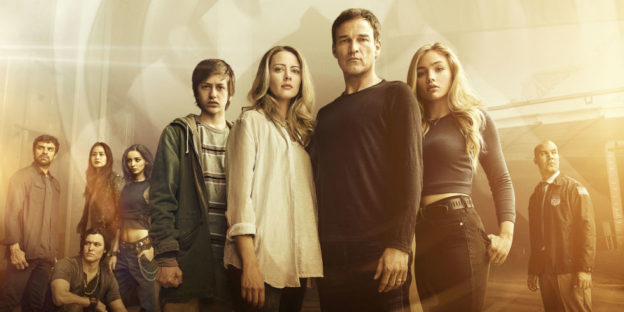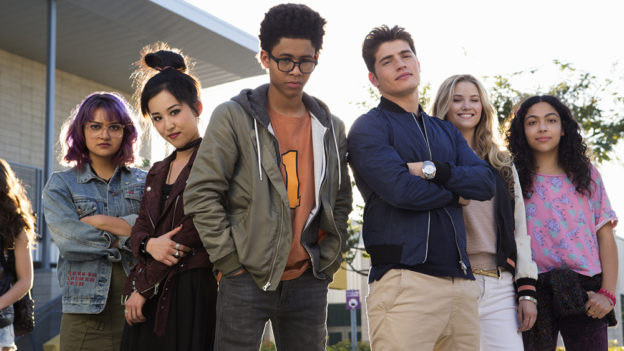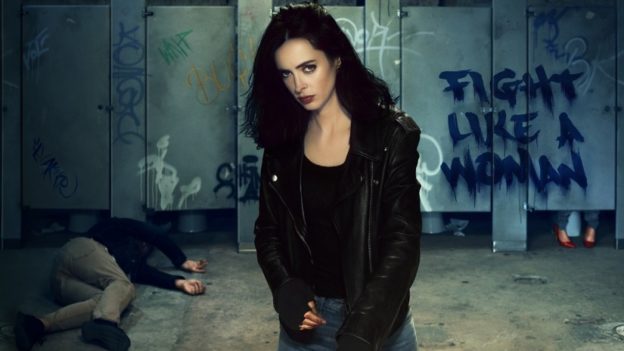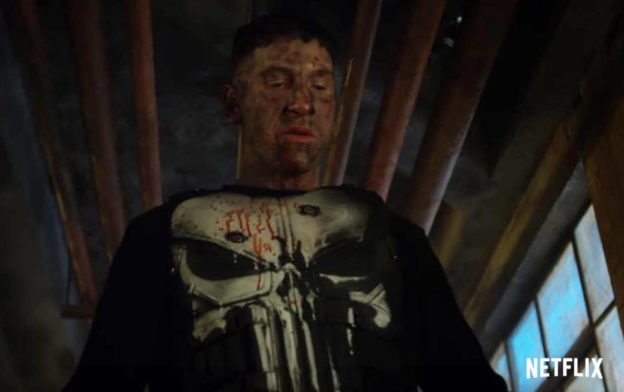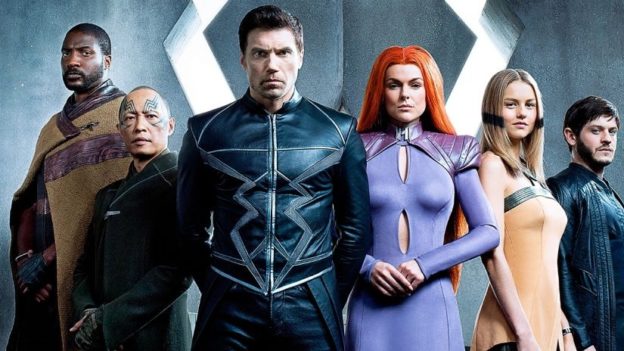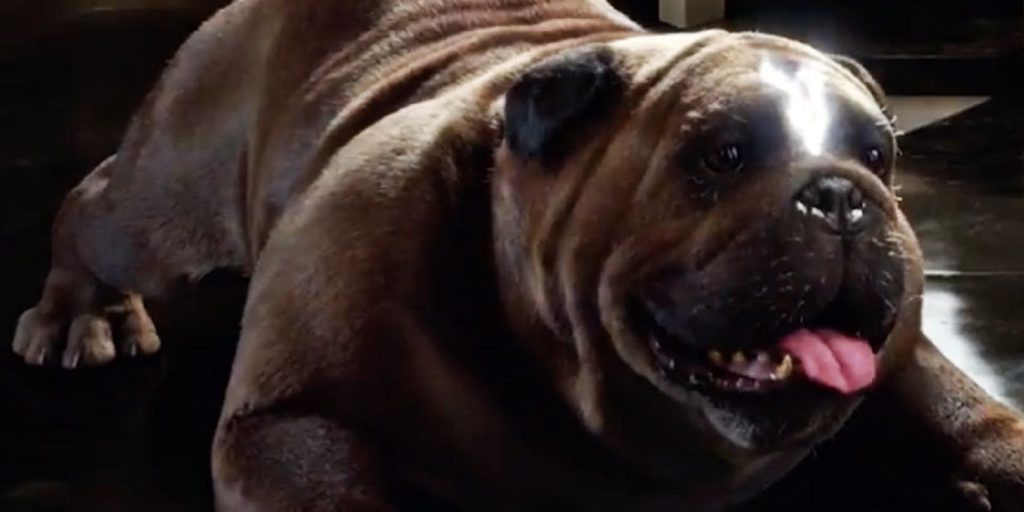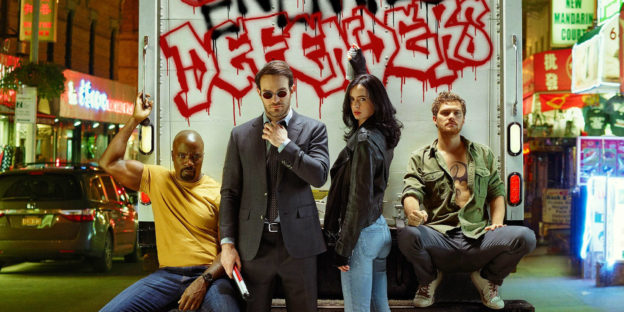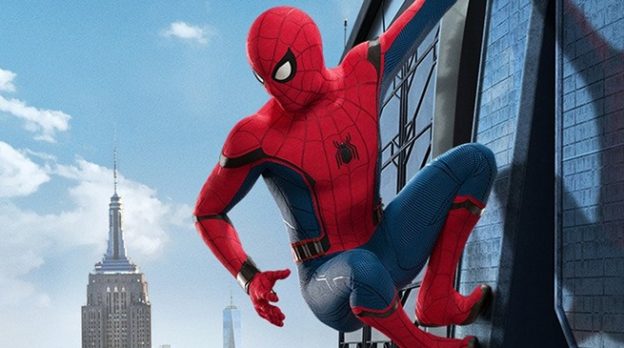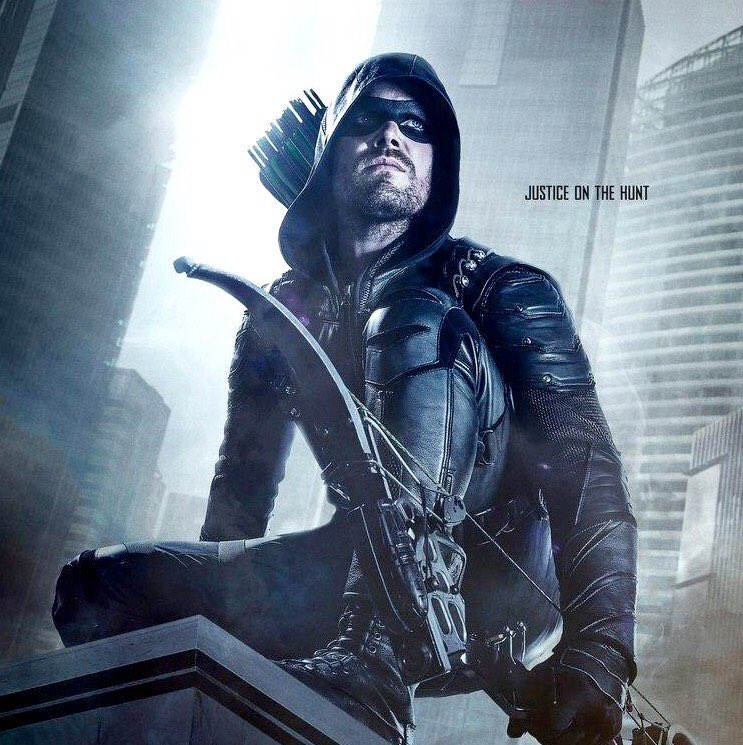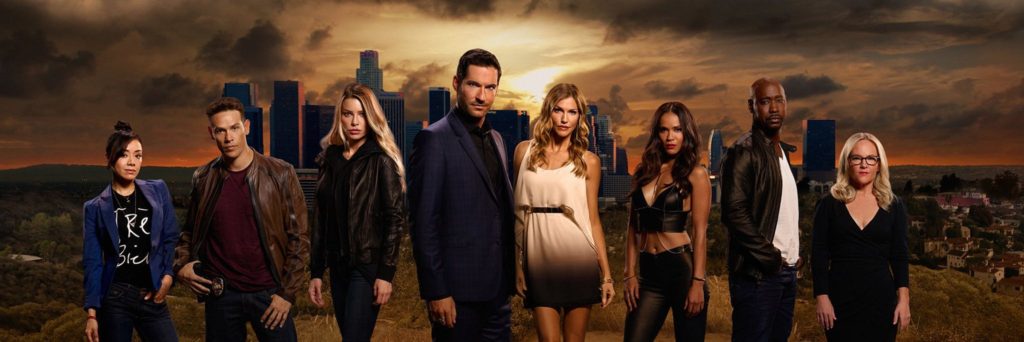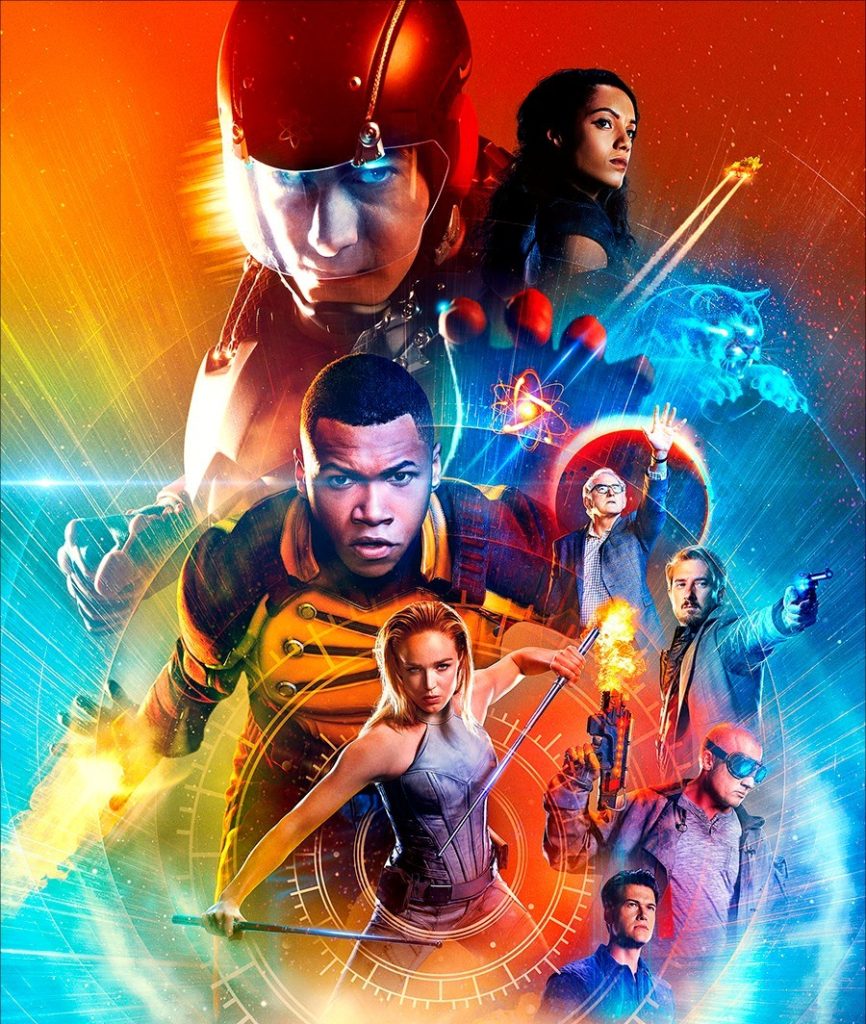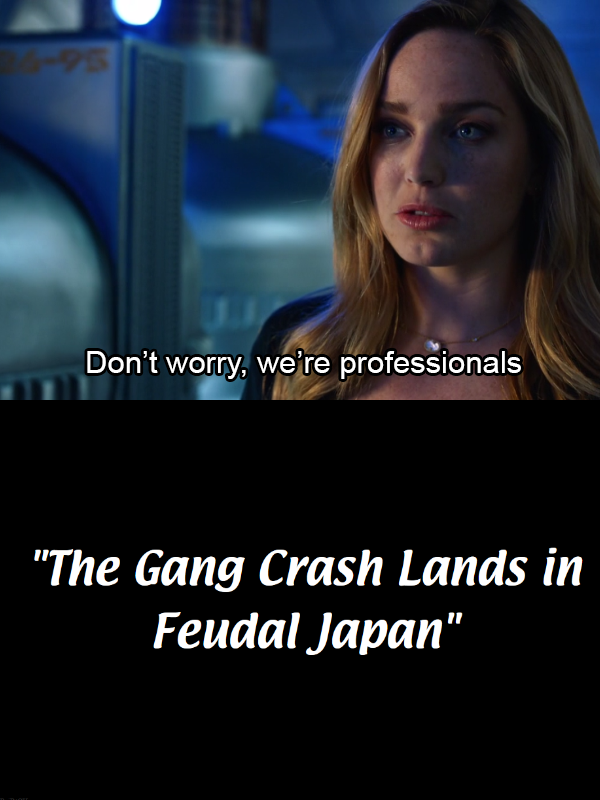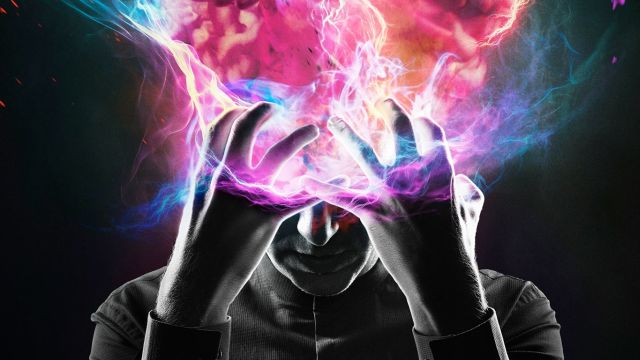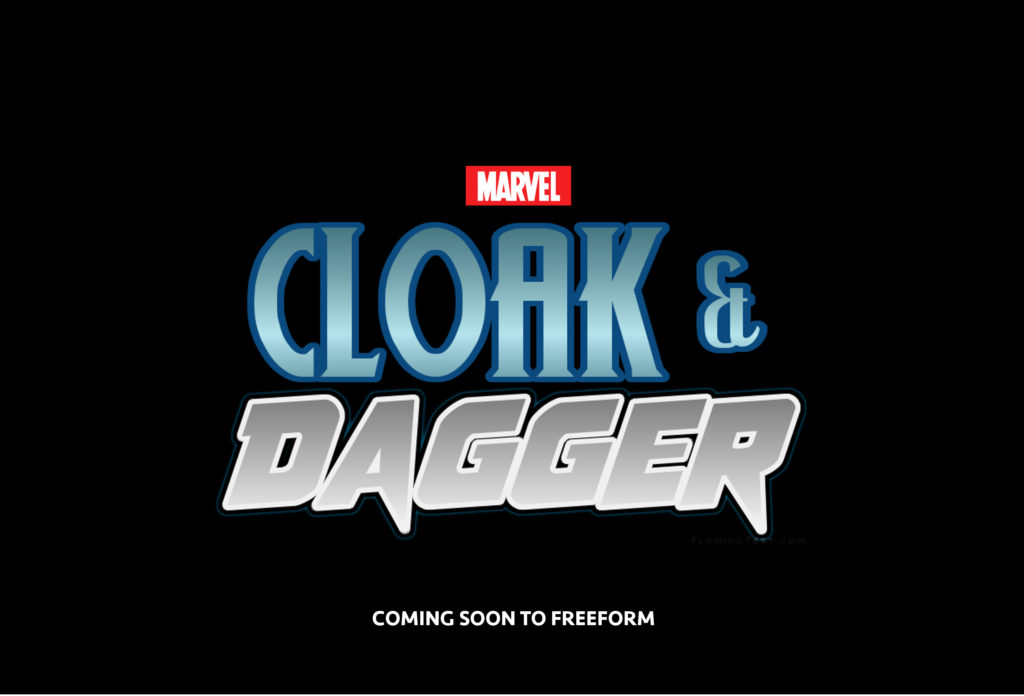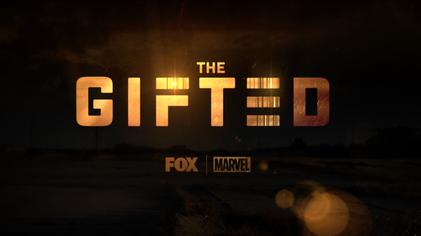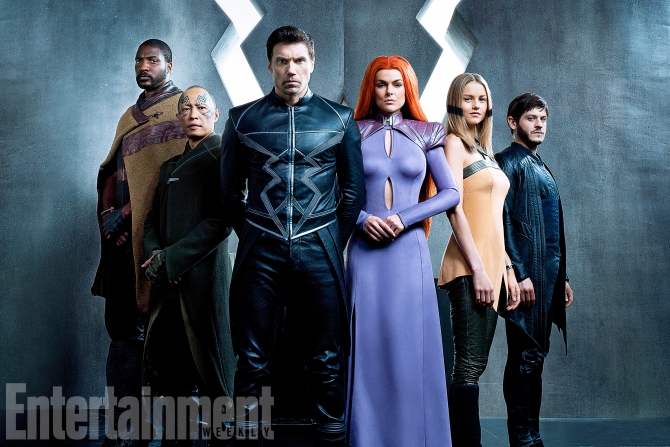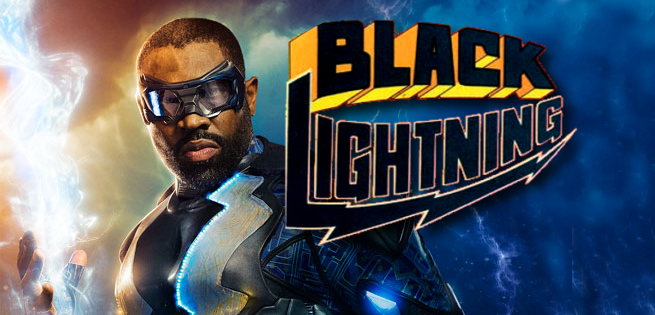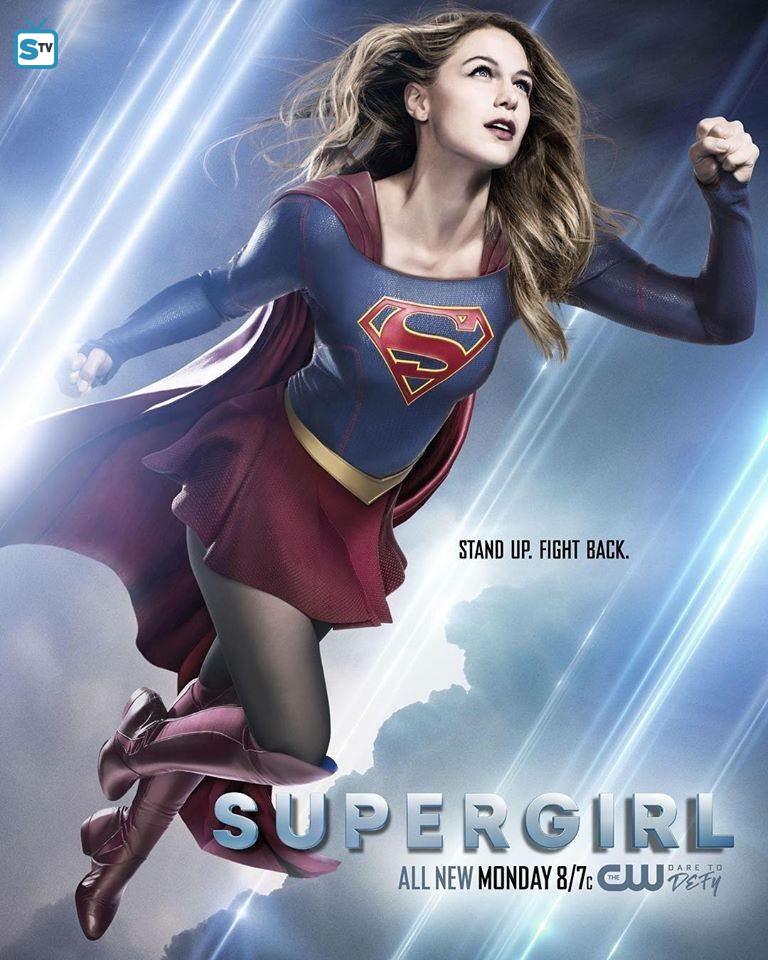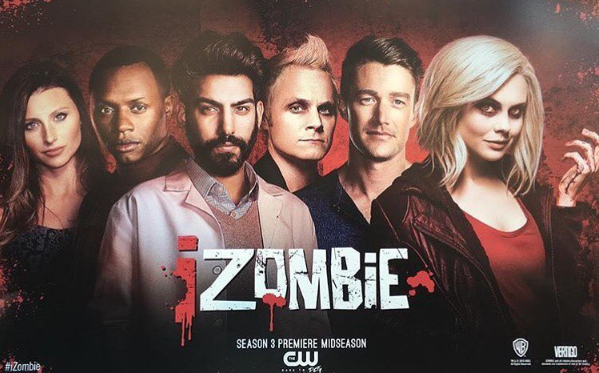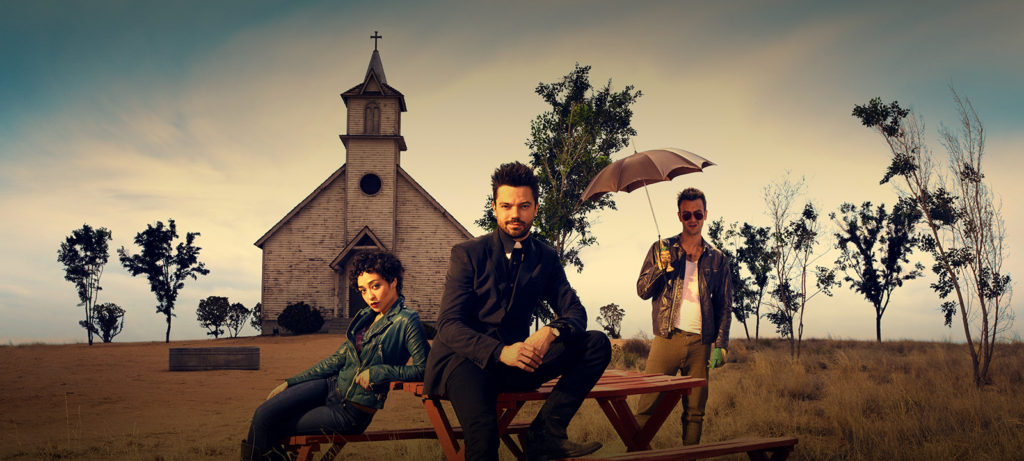Comic book TV is everywhere these days, and it’s happening all year. So I’ll hand out awards and rankings in June, but in the meantime, we’ll be reviewing shows one by one as they wrap up.
This instalment: Let’s catch up on a few longer-running shows that don’t warrant full entries. What did they do well? What could they have done better?
Short version: One show played like tomorrow wasn’t coming, while a few others got too confident about renewal.
Let’s begin.
Krypton
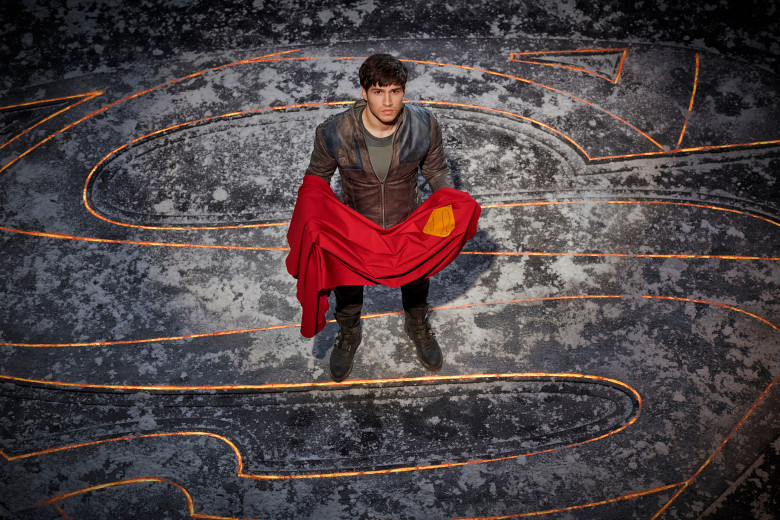
Not a returning show, per se, but after a decade of Smallville and four years of Gotham aren’t all of these prequel shows basically… no? Well, anyway.
What are the basics? In the city of Kandor on the planet of Krypton, a young man named Seg-El, years after his house was discredited leaving him simply known as “Seg,” is approached by a human from the future named Adam Strange claiming that Seg’s grandson is destined to be the galaxy’s greatest hero Superman, but one of his enemies has travelled back in time to ensure that doesn’t happen. Seg and Adam Strange find what allies they can in order to save Kandor from the approaching Brainiac, Collector of Worlds. At least they’re pretty sure that’s the plan…
What went wrong? Four episodes in I was really willing to give up on this show. It sold itself but claiming that there was much more to Krypton than how the planet died, and then opened by taking us to what must assuredly be the shittiest city in the worst part of Krypton. It is murder-cold outside the city’s dome all of the time, outside of the rich section at the top of the city it seems to always be night, and that’s just the aesthetics. Get past that, and Kandor is living under a theological dictatorship, where someone calling himself the Voice of Rao is enforcing an aggressively mean-spirited caste system. If you’re not in a Guild, you live down in the perpetual poverty and twilight with the Unguilded, fit only to be savagely oppressed by the city military the Sagitari, led by House Zod. It’s four episodes in a nightmare society that seem almost tailored to make us agree that the best thing that could happen to Krypton is dying on schedule. Oh, and they’re absolutely unprepared to handle Brainiac, because the Voice of Rao declared belief in aliens to be punishable by death for you and shame for your entire family, and Kandor’s ruling class said “Sure, that’s fine, be the Mayor, why not.”
Kandor is the city that the other Kryptonian cities would avoid eye-contact with at a party. The best of the Sagitari, Seg’s star-crossed lover Lyta-Zod, has to have a duel to the death with a fellow officer in order to change the official anti-terror policy to something other than “Kill all the poor people.” They created a world barely worth spending time in and then crafted a story about it that will apparently take multiple seasons to tell.
And no, it’s pretty definitively not connected to Man of Steel, Supergirl, or any other current property, because Warner Bros. seems determined to take Fox’s X-Men route as far away from “shared universe” as you can get.
What went right? Spoilers ahoy.
Halfway through the season, they pulled one hell of a plot twist, and it was enough to reinvest me in the whole enterprise. The terrorist leader who Seg had been grabbed by, played by British actor of note Colin Salmon, turned out to be Superman’s nemesis General Zod (Dru-Zod to his friends), son of Seg’s would-be girlfriend. Adam Strange was wrong, Brainiac hadn’t travelled in time at all. It was Zod who’d come to the past to stop Brainiac from stealing Kandor and setting the destruction of Krypton in motion.
“Wait, what was that last part?” asks Seg, before turning to glare at Adam. Turns out Adam had forgotten to mention a major part of Seg’s grandson’s destiny, the whole “last son of Krypton” thing, and Seg and friends were not exactly on board with his plan anymore.
With this, the show turned a major corner, and everything became more interesting. Brainiac took control of the Voice of Rao giving us a better villain and some spectacular CG shots of his ship; Seg’s nemesis, the obligatory scheming asshole Daron-Vex, became less essential; all the women in Seg’s life became even more interesting, as their loyalties and trustworthiness became… flexible; and we learned a few things about how Adam came to be here.
Seg’s one true love, Lyta-Zod, her stern mother Jayna, and Seg’s ordained spouse Nyssa-Vex make for decently fascinating characters, especially once their allegiances begin shifting in the back half. Adam Strange works as a character better than I expected, with my only issue being that he bears little resemblance to the Adam Strange of the comics, but so very much resemblance to Booster Gold. His role in the story is textbook Booster Gold, but for whatever damn fool reason the DC Entertainment bigwigs said “No, use Adam Strange.” Shenanigans.
What should they have done? Well, even though they won me over in the back half, I didn’t love them ending on a cliffhanger. Maybe because the first half was so grating that signing on for another ten episodes still feels like a chore. Now I’m forced to assume they have a multi-season arc planned. Which… ugh. So if they were going to set up this Zod-knows-how-long story, maybe they should have forgotten the rival house/rich vs poor malarky they wasted five episodes on, and gotten to the big question of “Is it worth sacrificing our entire planet?” a little sooner. Or at least showed us a Krypton worth saving. Oh… and bringing in Doomsday? Come on. You managed some excellent shots of Brainiac’s ship descending on Kandor but you do not have the budget for Zod vs Doomsday.
The Flash
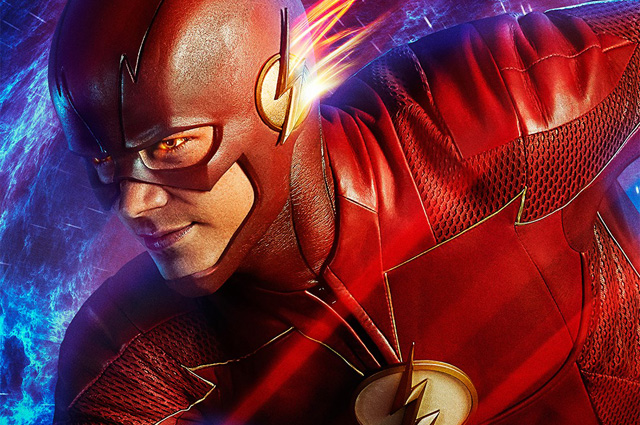
What are the basics? Barry Allen’s friends and allies manage to spring him from the Speed Force prison he entered at the end of season three, but in the process unleash a wave of dark energy that creates 12 new metahumans, including Barry’s new partner-in-training Ralph Dibney: the Elongated Man. This was all orchestrated by a hyper-intelligent metahuman named Clifford DeVoe, nicknamed the Thinker, who intends to harvest the powers of the new metas to facilitate a larger plan called the Enlightening. It’s not a great plan. It’s an evil plan.
What went right? The comic relief bits of the season were often pretty funny. Ralph Dibney… shows promise, but I’ll come back to that. Tom Cavanaugh plays no fewer than six variations on Harrison Wells this year, and they’re pretty amusing. Primarily he’s back to the stern Harry Wells of Earth-2, who’s still my favourite of the Wellses (sorry and RIP to HR Wells from last year). Cisco and Caitlin have good arcs, and they finally found a way to make Iris an important part of the team/show.
Which the so-called “fans” on reddit found utterly unacceptable. I didn’t want to think that r/flashtv was as nakedly misogynist as other parts of the site, but give a woman a major role on their superhero show and they lose their goddamn minds. Ugh. I hate fandoms so much. They make liking things feel so dirty.
Also they realized that writing situations that required two speedsters was proving tricky, and promoted Kid Flash to Legends of Tomorrow. (Update: and now he’s left. Welp.)
So good arcs, no marginalizing their female characters, and plenty of humour. The Flash must be as good as its heydey, right? Right?
Couple things.
What went wrong? Okay. Okay. Someone out there in the Flashiverse please hear this. After the dark and brooding Flashpoint/Savitar arc last year, you promised a return to the fun of season one. But what we got was the grimmest season arc yet, only with whoopie cushion jokes sprinkled in, and that is not the same thing. Yes, we had comic relief, yes, Tom Cavanaugh and Carlos Valdes (Cisco) were reliably funny, and so was Hartley Sawyer as Ralph when I wasn’t distracted by how he was written (see below). But all of that was background to an oppressively and punishingly dark A-plot, in which DeVoe cannot be stopped by anything for 22 out of 23 episodes. He kills who he wants to, he beats the Flash at nearly every turn, he successfully frames Barry for murder, it gets wearying.
This is becoming a systemic problem on The Flash. If Barry fights his season-nemesis 100 times, he’ll lose 99 of them, and that kind of perpetual loss is a bit much for a full 23-episode season. It was worse here, because at least Reverse-Flash, Zoom, and Savitar didn’t show up to screw with the team on a weekly basis.
So that’s the big problem. Other quibbles now.
Ralph’s arc from drunk PI to legit hero was 90% well done, but I do have one note on that character. This is the Elongated Man.
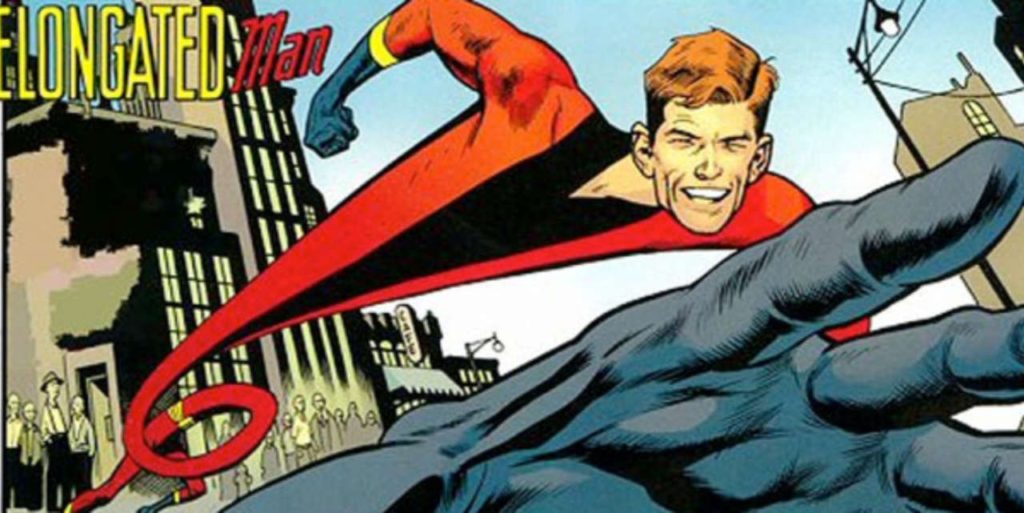
He’s a skilled detective who has the ability to stretch his body, and roams the world solving mysteries with the love of his life, Sue. Elongated Man on The Flash is, at first, a sleazy PI and womanizer who has the ability to stretch and sculpt his body into different shapes, and sometimes lacks the stomach for heroism. That’s not Ralph Dibney. That’s Eel O’Brian. This guy.
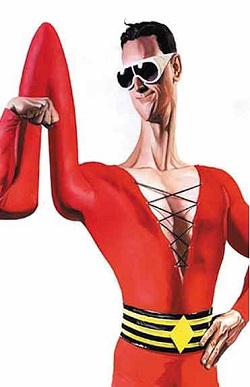
Otherwise known as Plastic Man. I know they’re similar, they have very similar power sets (stretching is less versatile), and both tend to crack wise most of the time. But like Krypton very clearly featured Booster Gold shoved into a crude approximation of Adam Strange, the Flash writers have very clearly written Plastic Man but called him Elongated Man. Yes, Ralph and Barry go way back in the comics so using Ralph makes more canonic sense, but come on. If you wanted to write Plastic Man, just do that. Here’s hoping future seasons sort this out, now that we’re through Ralph’s training season.
Quibble the second… starting with “Crisis on Earth-X,” Team Flash is repeatedly visited by an odd woman seemingly out to have meet-cutes with all of them individually, who writes in the bizarre language Barry was writing in when he emerged from the Speed Force, before his brain sorted itself out. Most notably, he wrote what they translate to “This house is bitchin'” in giant letters. And it’s a language Harry Wells starts writing in when his brain’s on the fritz. I was waiting all season for the payoff, to find out what house was bitchin’, to be told the obvious truth that this was Barry and Iris’ daughter from the future. They finally did all of this… in the closing minutes of the season finale.
Are you kidding me. You spent that much time, over the entire year, setting up a character for next season. I spent months waiting for Future Daughter to race to the rescue against the Thinker, and she just hangs out until the finale cliffhanger? This is what I meant by “too confident about renewal.” Stuff like this.
Also I do not know who told Katee Sackhoff that her British accent was working but hoo-di-lolly it was not.
What should they have done? No fewer than five times they implied that DeVoe, or the Thinker, might not be as unbeatable as he thought. Absorbing all the meta powers was throwing off his intellect, the smarter he got the less he could process or account for emotions, his wife and partner in crime was turning on him, two bus metas had abilities that seemed to be the keys to beating him. Almost none of that went anywhere. He made it all the way to episode 23 with his only losses being Barry eventually clearing his name after the murder-frame, and DeVoe’s wife running out on him.
Villains can be menacing and fallible. To recapture the fun of first season and their sister shows, they have to let Team Flash win a few rounds before the final showdown. Legends of Tomorrow knows this. Supergirl knows this. Black Lightning knows this. Even Arrow gets it from time to time. The Flash needs to figure it out as well, and… excuse the wording… fast.
Arrow

What are the basics? Oliver Queen finds himself under assault as both mayor of Star City and as the Green Arrow when cyber-anarchist Cayden James (the superb Michael Emerson) forms a cabal of high profile criminals in an attempt to bring down the city and its protector. But it turns out one of Cayden’s team, Ricardo Diaz (Kirk Acevedo), has his own plans. Plans to strip everything away from the Green Arrow and turn Star City into a criminal hub under his own control. Oliver must find a way to win back his team and some sort of law enforcement support if he’s going to have any chance of taking back his city.
What went right? Michael Emerson was predictably great as Cayden James, and the swap from James to Diaz kept the season from getting mired down in one repetitive plot the way certain others I just mentioned did. Say what you will about Felicity Smoak hijacking Barry and Iris’ quickie, slapdash, “someone just let us say ‘I do’ already” do-over wedding ceremony and turning it into a double wedding, but getting Oliver and Felicity low-key married ended the “Olicity” drama that soured season four and scraped the annoying off of Felicity’s character. Not that the anti-Felicity crowd will be happy, but nothing but the death or irrelevance of all dem dere wimmin folks on their super-hero shows will do that, so screw ’em all. And Cayden’s cabal was a strong gathering of Arrow persons of interest: Laurel “Black Canary” Lance’s evil Earth-2 doppelganger, Black Siren; Oliver’s former pal from the Bratva, Anatoly; Vigilante, given more to do this season than “distract us from figuring out who Prometheus is.” And, of course, Ricardo Diaz.
What went wrong? …There’s a reason everybody else (except the grossly incompetent) only does “Are they a hero without their powers” for one or two episodes, not half a season. In specific, two things…
The second act, where Oliver’s allies and support systems leave him piece by piece, stretched on too long. There were two, possibly three episodes where Original Team Arrow, as they were called, and the new allies from last season who’d split off reluctantly worked together, only to end the episode still at odds with each other, with Wild Dog saying “This doesn’t change anything, Hoss.” He said that a lot. Definitely too much. By the time they well and truly turned on each other, I was just ready for something to change, Hoss.
Second… after Prometheus, and with the Thinker over on Flash, I wish they hadn’t gone back to the All-Knowing Mastermind. From episode one, Ricardo Diaz knew all of Oliver’s secrets and how to dismantle him as mayor and hero. We just did that last year.
Other issues… the finale cliffhanger was a choice that I always respond to with “Ugh, how long are they going to stretch this nonsense out.”
And Diaz gets away? Sure he loses, Team Arrow reclaims Star City, if not the office of the mayor, but he’s still out there. I mean… it’s not a terrible choice? Kirk Acevedo is good at this role, so I don’t hate the idea of him still plaguing the city a little, but given that four out of five previous Big Bads at least seemed to die in the end (one was faking, one got resurrected in one of the season’s better musical numbers), it was an unexpected choice. Made the season finale feel more like a fall finale. It doesn’t seem like the story actually ended, save for Oliver seeing the problems with his crusade and taking a kind of extreme path to correcting them.
An FBI agent more concerned with bringing in the Green Arrow than stopping a criminal enterprise from taking over an entire police force and city council does not seem like an FBI agent good at her job.
And I’m not convinced bringing in Oliver’s son William, who is either a little autistic or just woodenly acted, was a big value add. Although I guess getting Oliver and Felicity married avoided any “how do I be a superhero and a good single father” nonsense.
What should they have done? Instead of being the secret mastermind pulling Cayden James’ strings and scheming against Oliver for the first half, they could have had Diaz just be an opportunistic gangster who sees an opportunity. His line upon killing James and taking over was perfect: “Why destroy a city when you can own it?” That was good. Might have also helped to move his backstory episode up a little, give us a view of who Diaz was earlier.
Also at least two fewer “This doesn’t change anything Hosses.”
Agents of SHIELD
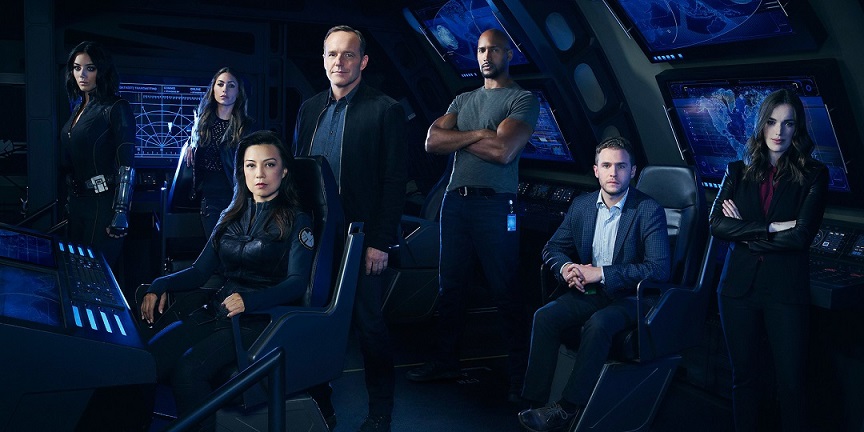
And then there was the one who left nothing on the field.
What are the basics?
“We’re in space,” Coulson told Mack.
“Makes sense,” Mack replied. “Only thing we haven’t done.”
Agents of SHIELD returned to the mini-arc structure that worked so well for them last season, albiet with larger arcs. For the first almost-half of the season, the agents of what was SHIELD find themselves a) in space, and b) a little under a century in the future… a time when Earth has been little more than a debris field for generations, and what’s left of humanity lives on an old SHIELD facility under the harsh rule of the Kree… primarily Kasius and his mostly silent henchwoman Sinara. Coulson and his team must bring down Kasius and find a way back to the past, where they struggle to prevent Earth’s grim fate… except they appear to be in a time loop. As another sci-fi show put it, all of this has happened before and will happen again.
While they’re in the future, a lot of dangling threads get put on hold… Coulson’s deal with the Ghost Rider, the fact that a day or two ago everyone was in a computer simulated world called the Framework where a couple of them were the bad guys, that sort of thing. Once they’re back in the present, however? Every dangling thread gets tied in a neat little bow.
Seriously, everything.
The writers knew that only a mandate from Disney spared them from cancellation last season, and now that they’ve crossed that syndication-happy 100 episode mark, that might not come again. And also their season started later than it ever had, as ABC experimented with The Inhumans. To all of our chagrin. Daisy Johnson, Earth’s most infamous Inhuman as far as Agents is concerned, might never meet the Inhuman royal family that moved to Hawaii while she was in the future, and that’s just fine. Eventually we’ll all forget that Inhumans happened.
But not forgive.
Back to Agents… dangling threads from season one are back, such as the sinister substance gravitonium, which plays a huge role. The Absorbing Man’s back, Hydra still exists, the Centipede program that kinda-sorta filled the episodes before Winter Soldier plays a key role, there is a small parade of past recurring characters… except Ward. Kinda odd that Grant Ward, the only main cast member from season one not still on the show, didn’t even get a guest appearance in episode 100. He can’t have been too busy, he made time for the season premiere of Elementary.
He was the most recognizable guest star, of course he was the killer.
It made for a thrilling back half, especially as they cycled through main villains as everyone jockeyed for position in a fight to control or save what was, for the moment, a still-intact Earth.
Deke, an ally (of sorts) they make in the future who unexpectadly follows them to the past, was a fun addition. Does Deke still exist? Did changing the future erase him from existence? They never really said. He just wandered off and waited to never have existed.
What went wrong? Two things.
First, while back half villains like General Hale and her Hydra assassin daughter (played by Dove Cameron, who the internet feels is notable, but I’d never heard of) lasted just long enough to be interesting then pass the baton, Kasius and Sinara overstayed their welcome. By the end, I was actually shouting “Somebody kill her” at the screen whenever Sinara resumed stalking Daisy. I mean seriously, she was not presenting them with other options.
The main issue is that they spent a lot of time arguing whether their future can still be changed, or since the only way they made it back to the past is that their future selves did all the legwork, the future is fixed, time is a flat circle and nothing they do to save Earth is going to work. What they didn’t do was give any reason why this particular time through the loop is special. Like Flash and Elongated Man finally beating the Thinker, there was no reason why this time it worked when it never had before.
What should they have done? Taken a page from a particularly good Doctor Who episode. Two weeks before the finale, blow up the Earth. In the stinger, cut to Future Simmons recording one extra detail in the plans she and Fitz leave for their past selves. Next week, show us the final days of Fitz and Simmons… but Simmons adds one more detail. Then run the loop faster and faster, the world always exploding, but each time they figure out just a little more of how to stop it. Then in the finale, they’ve finally run the loop enough times that they save the Earth.
Maybe you would have had room for all of that if you’d wrapped Kasius and Sinara a little faster. Just saying.
It would have been just a slightly more satisfying end.
Also… I get why you felt you had to reference Infinity War. I get it. I do. Y’all are thirsty to be part of the MCU even though the film branch will never love you back. But name dropping Thanos twice and referring to “all the craziness in New York,” and only New York, just kinda proved that nobody in your writers’ room saw the Infinity War script. Because only two of Thanos’ minions went to New York, they were there for maybe seven minutes, and they didn’t cause that much havoc. The film spent as much time in Scotland as New York.
Anyway, season six has been delayed so long that all the Infinity War fallout will have been cleaned up in Avengers: In It to Win It by the time we see this bunch again.
Probably shouldn’t have called this a speed round if I was going to talk for 3800 words.
Well… bye.

